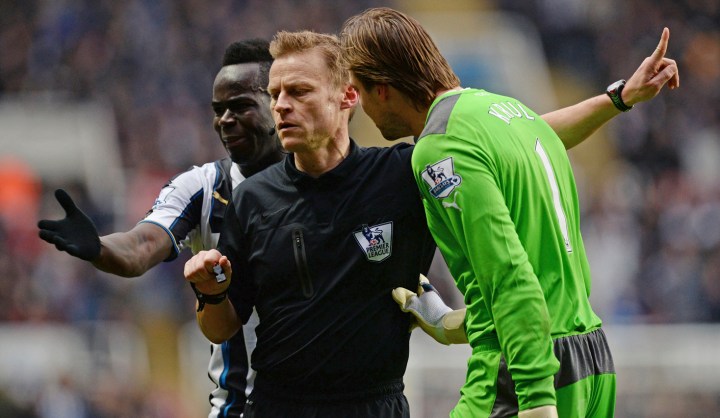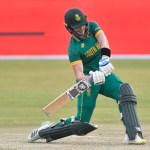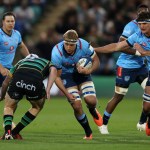Sport
Offside, accountability – and a painful loss for Newcastle

Newcastle lost 0-2 to Manchester City at St. James’ Park. It was no ordinary loss as it involved an offside decision which stirred a massive debate. It left players and fans – both at the game and following it at home – confused and frustrated. Those who run the sport need to be more accountable for such decisions. They also need to take responsibility for giving fans more, because they deserve it. By ANTOINETTE MULLER.
In football, dubious decisions go hand-in-hand with the sport itself. Hardly a weekend goes by that isn’t darkened by a suspicious call which divides opinion and stirs debate. Sunday’s Premier League game between Newcastle United and Manchester City was no different.
With City leading 1-0 and not looking as overpowering as they usually do, Newcastle clawed their way back into the game. Cheick Tioté fired a stunning free kick into the back of the net, only for it to be ruled offside and controversy to erupt. The referee went straight over to the linesman to ask whether any of the Newcastle players were in an offside position. The answer was “yes” because three players were. However, simply being in an offside position doesn’t mean a player is offside.
The law does apply in the following instances, though: if a player is interfering with play, interfering with an opponent or gaining an advantage from being an offside position. There was little chance that any of the players were directly interfering with Joe Hart’s line of sight and the rule relating to “interfering with play” was changed last year.
It used to state that interfering refers to the following: “Clearly obstructing the opponent’s line of vision or movement or making a gesture or movement which, in the opinion of the referee, deceives or distracts an opponent” but it has been changed to the following: “Preventing an opponent from playing or being able to play the ball by clearly obstructing the opponent’s line of vision or challenging an opponent for the ball.”
One would be hard pressed to argue that Hart’s vision was obstructed; it was not. He might have thought that the player in front of him was about to go for the goal himself, though, and that’s where the rule could come into play. Yoan Gouffran, who ducked as Tiote rocketed the ball goal-wards, was “interfering with play” under the old rules, but under the new law, the decision is open to interpretation. Ducking might also been seen as “gaining an advantage”, but that is clearly defined too and does not mention ducking.
While the law was changed to stop situations like this “preventing an opponent from playing or being able to play the ball”, it is still, as mentioned above, open to interpretation. Some will argue that Hart wasn’t sure of what the reaction from the player in front of him was going to be and, with the player being in an offside position, that would render it offside. The opposite argument would be that because it was a “clean hit”, Hart’s reaction should have been as if there was nobody in the way. The referee explained his decision as being made for a player “intervening with play”. That’s where the explanation will stop, though. And that’s where the problem comes in.
Officials at the highest level are rarely held accountable for their decisions and are rarely prompted to offer more detailed explanations for their decisions. This is not their fault; the governing bodies prevent them from doing so. All this does, though, is cause more animosity from both the fans and the players. Tiote said after the game that he “[didn’t] know why it was offside”. While those watching at home had the luxury of replays, explanations on TV and the intricacies of Twitter to get stuck into, imagine how those fans at the ground must have felt – especially those who did not have a clear sight of the original decision. Football and its rules are convoluted as it is and with crowds as tense as they are, it hardly needs added frustrations added to it. For the fans at the ground, there needs to be some sort of immediate communication as to what has happened and why it has happened – whether that is done via an announcement or displayed on the screens or via earpieces that provide commentary, as are handed out at cricket during Australia and England matches. Those who watch the game and pay good money (£44 for the cheapest ticket at St. James’ Park on Sunday) deserve much better than they are getting. Officials and those who are in charge of the game need to take responsibility for the experience and need to treat fans better.
The immediate reaction to decisions like the offside goal on Sunday needs to be better dealt with, because it is something that does happen more often than it should. Furthermore, the decisions need to be clearly explained afterwards in order for followers of the game to understand similar decisions in future.
Newcastle coach, Alan Pardew, hit out after the game, saying he did not understand why the goal was not allowed to stand.
“I don’t think he was clear in his answers about Joe Hart being impaired – I couldn’t work that out. I don’t understand it. Even if Man City’s back four is on the edge of the box and we’ve got four offside, it’s such a clean hit, it’s going in the top corner. He’s got that wrong and unfortunately that was a massive call. In these type of games they have got to go your way. It was probably easier for him to give the goal and I can’t understand why he hasn’t. We’re crying out for entertainment, you hit a goal like that and the place is in uproar, and he’s gone on a real tiny technicality, which I think is wrong,” he said afterwards.
From the entertainment point of view, Pardew is correct. The Premier League is in the entertainment business and when a player hits a cracking shot like that, especially against a high-flying club like Manchester City, perhaps there are rules which can be bent, or should be. Football does not owe anybody anything, but Newcastle United certainly deserved more than the 0-2 they got out of it in the end. They contained Manchester City and sustained pressure for long periods of time. City didn’t look anywhere near their usual dominant self and for that, the Magpies deserved something. But sport isn’t played like that and it’s something which can’t be changed. What can change, though, is the way in which the games are consumed, explained and digested. That only comes with the stakeholders taking a little bit more responsibility and showing a little bit more nous when it comes to spending all those buckets of money they’re raking in. DM
Photo: Newcastle United goalkeeper Tim Krul (R) confronts referee Mike Jones (C) who ruled out Cheick Tiote’s (L) goal against Manchester City for offside during their English Premier League soccer match at St James’ Park in Newcastle, northern England, January 12, 2014. REUTERS/Nigel Roddis.



















 Become an Insider
Become an Insider